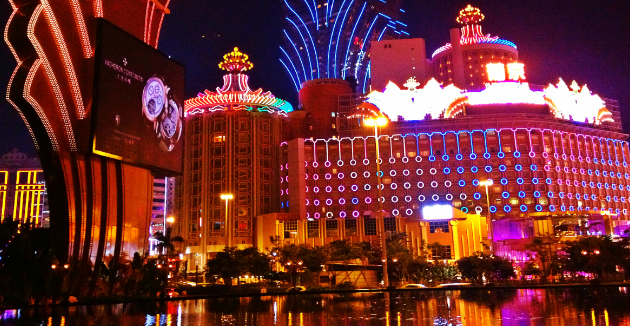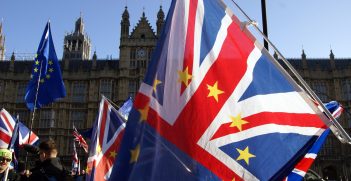China's Gambling is Stacked in Macau’s Favour

For Chinese President Xi Jinping, the only thing worse than gambling in China is travelling elsewhere to gamble. Following Xi’s crackdown on corruption, Macau is reaping the benefits while foreign casinos have drawn a losing hand.
Despite the popularity of social gambling in Chinese communities, Article 303 of China’s Criminal Law strictly prohibits gambling for profit on the mainland. Casino gambling, the marketing of gambling activities and taking more than US$50,000 (AU$65,000) out of China within a year are also illegal.
But what the mainland lacks, nearby Macau makes up: “the mountains are high and the emperor is far away,” as the saying goes. As a special administrative region of China under Article 31 of the constitution, Macau enjoys a high degree of autonomy. Following the liberalisation of Macau’s gaming industry in 2001, foreign companies saw the region as a gateway to the inimitable Chinese market.
Fierce competition to attract Chinese gamblers from the mainland meant that by 2007, Macau casinos surpassed the Las Vegas Strip in gaming revenues. Companies from the Philippines, Australia and Singapore have invested billions to attract Chinese high rollers who constitute 60-70 per cent of Macau’s revenue.
“Some foreign countries see our nation as an enormous market, and we have investigated a series of cases,” said Deputy Bureau Chief for China’s Ministry of Public Security Hua Jingfeng, who issued a direct warning to foreign casinos marketing on the mainland. “Neighbouring countries have casinos and they have set up offices in China to attract and drum up interest from Chinese citizens to go abroad and gamble. This will also be an area that we will crack down on.” Foreign casinos in Macau have drawn China’s ire by exploiting guanxi (personal networks) and contributing to corruption on the mainland.
Junket operators, employed by foreign casinos, use guanxi in Macau both to attract gamblers and enforce debts. High rollers are enticed to gamble in VIP rooms in Macau and abroad through informal personal channels and are offered lines of credit, sidestepping the Chinese government’s prohibitions.
Due to Macau’s ineffective junket operator regulation and the people’s court’s refusal to enforce gambling debts, junkets exploit close connections with Triad members, a branch of Chinese transnational organised crime, to collect debts in the mainland.
This flagrant flouting of Chinese laws is a gateway into China’s bigger problem: corruption. Foreign casinos in Macau are a conduit for huge capital flows out of China. Four years ago, before Xi Jinping was president, illicit side betting constituted six times Macau’s revenue, an estimated US$250 billion. Corrupt Chinese elites and officials could gamble ill-gotten gains as well as move money offshore through Macau’s casinos and on gambling trips further abroad.
Since entering office in 2012, President Xi’s anti-corruption crusade has been a cornerstone of his administration. “The most serious threat to us, as the ruling party, is corruption,” Xi said in 2016. “Now we are making a landslide victory.” While the broader war against corruption has been arguably superficial, the battle against foreign casinos in Macau has had the desired effect.
Following the arrests in 2015 of staff from two South Korean gaming companies, other casinos should have heeded Xi’s warning. But in October 2016, 17 Crown Casino staff, including three Australians, were arrested in a series of raids. This has caused serious problems back home, where Crown’s revenue from Chinese high rollers has plummeted and shareholders are seeking to launch a class action against Crown for failing to disclose known risks.
The arrests solve Xi’s problems by keeping gambling within Macau, a jurisdiction under its control. In February, Macau’s gambling revenue rose for the seventh month in a row and marked a two-year high with revenue of US$2.9 billion.
“We view this positively for Macau and at the same time slightly more negatively for other overseas jurisdictions that rely on Chinese for VIP play,” said Grant Govertsen, an analyst at Union Gaming Group. “Ultimately we believe that Beijing would rather be able to monitor VIP play, and that means they’d prefer for the business to be in Macau.”
Macau has drawn the winning hand in the crackdown on foreign casinos over the past year. In the face of fierce anti-corruption enforcement, foreign companies need to re-evaluate how they operate casinos in China. When it comes to corruption, the mountains are gone and the emperor is watching.
Catherine Garlick is studying for a bachelor of laws/arts majoring in international relations at the University of Queensland.
This article is published under a Creative Commons Licence and may be republished with attribution.





